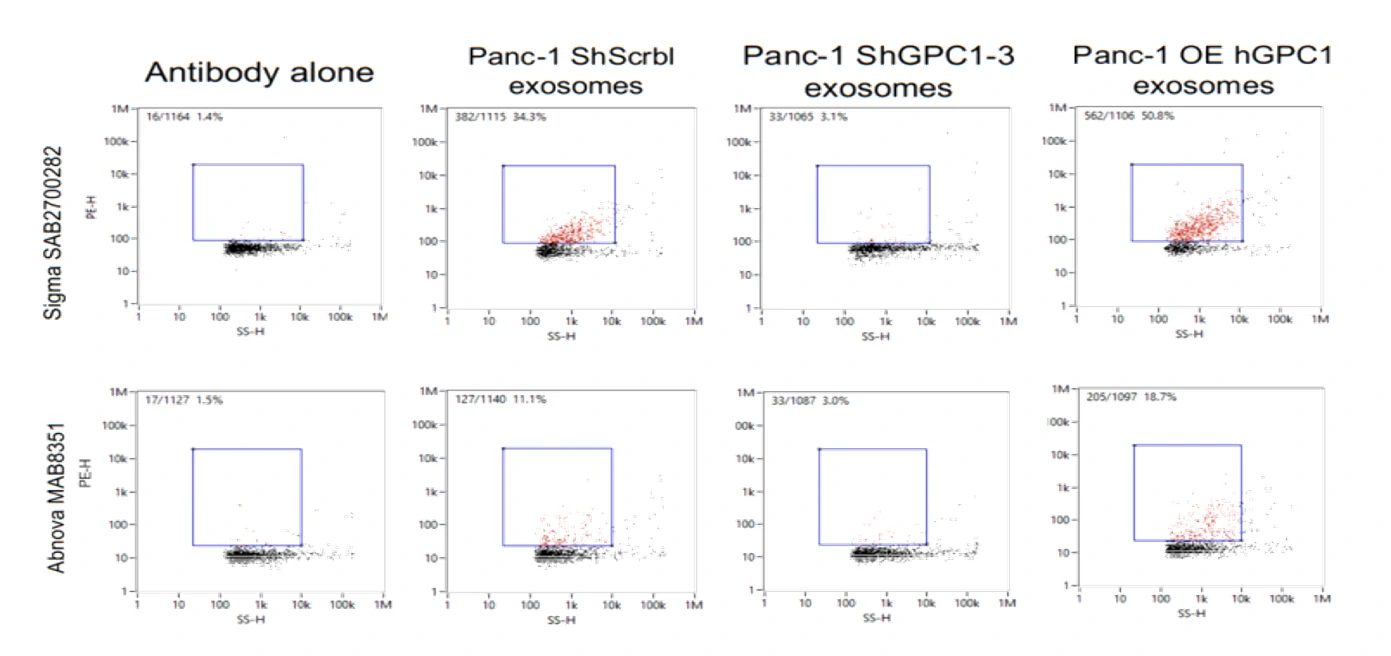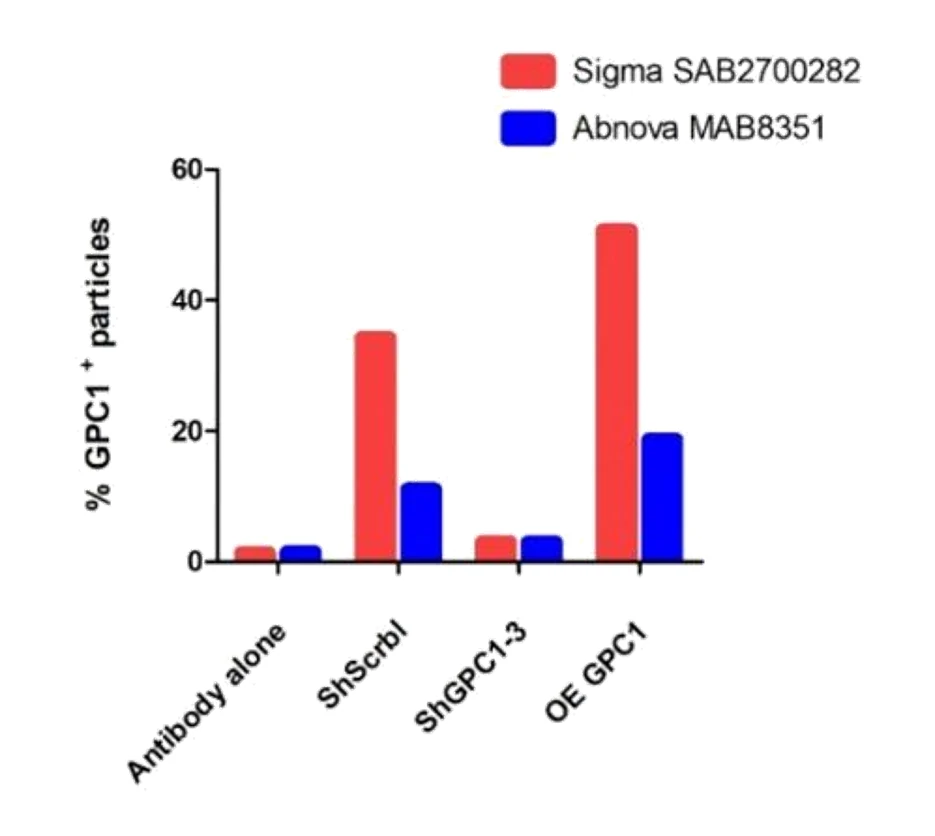Pancreatic Cancer
Exosomes are nano-sized vesicles shed by all cells, including cancer cells. As they carry phospholipids, nucleic acids and proteins from their parent cells, exosomes can serve as novel liquid biopsies for diagnosis of cancer with potential prognostic value. In a? previous study, it was found that the number of Glypican-1 (GPC1) positive exosomes was significantly higher in the circulatory system of pancreatic cancer patients compared to normal subjects, and follow-up studies revealed an enrichment of GPC1 positive exosomes in breast, colorectal and oesophageal cancers, in addition to pancreatic cancer, suggesting that GPC1 is a promising marker for the early diagnosis of many cancers. In this study, the phenomenon of GPC1 overexpression in exosomes of pancreatic cancer patient origin was verified for the first time at the level of individual exosomes using multi-parameter analysis using the Flow NanoAnalyzer by immunofluorescence staining of exosomes from pancreatic cancer patients, patients with benign pancreatic disease and normal donors, and using a variety of antibodies to detect GPC1 specificity in exosomes extracted from sera of pancreatic cancer patients. A monoclonal antibody with highest specificity for GPC1 was successfully screened.

Figure 1. Proportion of GPC1+ positive exosomes analyzed by the Flow NanoAnalyzer.

Figure 2. Comparison of positive rates for different antibodies to GPC1.
The Flow NanoAnalyzer qualitatively characterises and quantifies the expression of GPC1 protein on the surface of individual exosomes by immunofluorescence staining methods, which provides a platform for diagnosis of early-stage cancer with EVs as carriers.
DOI: https://doi.org/10.1101/145706.




